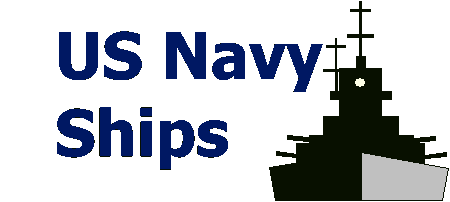



The Clinton Administration's Nuclear Posture Review was chartered in October 1993, and the President approved the recommendations of the NPR on September 18, 1994. As a result of the NPR, US strategic nuclear force structure will be adjusted to 14 Trident submarines -- four fewer than previously planned -- carrying 24 D-5 missiles, each with five warheads, per submarine. This will require backfitting four Trident SSBNs, currently carrying the Trident I (C- 4) missile, with the more modern and capable D-5 missile system. The four boats that will be withdrawn from the strategic nuclear role will be dedicated to other missions. The Navy has a limited window of opportunity to conduct the conversion prior to inactivation of the Tridents scheduled to start in FY '03.
At an investment of about $400M/ship (not including replacement cores) the Navy would acquire a modified Trident capable of carrying 154 Tomahawk missiles as well as Special Forces.
One or more of the retiring Ohio class SSBNs might be modified to carry large VLS battery of Tomahawk, with each 40-foot-deep Trident missile tube replaced by cylinders containing seven Tomahawks apiece. One Trident SSGN would provide about an additional Battle Group's equivalent of Tomahawk cruise missiles during a crisis.
Trident SSGN also provides the CINCs and Battle Group commander a large SOF contingent (4 platoons) capable of carrying out a sustained and continuous level of effort of Special Forces missions. Each boat could carry up to 66 SEALs or other commandos, and a minisub currently under development would be affixed to the bow. However, there are not many missions in which such a large force of SEALs would play a significant role.
The existing DOD guidance calls for a force of 50 attack submarines, although some studies have called for raising the number of subs to as many as 72. Existing plans are sufficient to meet the goal of 50 boats, although higher numbers would require modification to these plans. According to Navy secretary Richard Danzig, as of October 1999 the Joint Chiefs of Staff were studying options for increasing the size and capability of the submarine force. The three options under review include by converting older Ohio-class SSBN submarines to so-called SSGNs at a cost of $420 million; refueling and extending by 12 years the service life of perhaps eight Los Angeles-class (SSN 688) subs at a cost per copy of $200 million; or building new Virginia-class (SSN 774) subs at a rate of at least four over the next five years, at a cost of roughly $2 billion per boat. The FY2000 Defense Authorization bill requires the Navy to study converting four of the oldest Tridents to the new SSGN configuration.
| |
| Builders: | General Dynamics Electric Boat Division. |
| Power Plant: | One S8G nuclear reactor, output of 60,000 hp core reloaded every nine years two geared steam turbines, one shaft |
| Length: | 560 feet (170.69 meters) |
| Beam: | 42 feet (10.06 meters) |
| Displacement: | Surfaced: 16,764 tons Submerged:18,750 tons |
| Speed: | Official: 20+ knots (23+ miles per hour, 36.8 +kph) Actual: 25 knots submerged speed |
| Operating Depth: | Official: "greater than 800 feet" Actual: greater than 1,000 feet |
| Crew: | 15 Officers, 140 Enlisted |
| Armament: | 154 Vertical Launch tubes for Tomahawk four torpedo tubes |
| Sensors: |
BQQ-6 Bow mounted sonar BQR-19 Navigation BQS-13 Active sonar TB-16 towed array |
| Unit Operating Cost Annual Average | ~$50,000,000 [source: [FY1996 VAMOSC] |
| Date Deployed: | USS Ohio conversion post-2000 |
| ||||||||
| Boat | Name | Builder | Base | FY Order |
Laid Down |
Launch | Commission | Stricken |
|---|---|---|---|---|---|---|---|---|
| SSBN-726 | Ohio | GD-EB | PAC | 1974 | 10 Apr 76 | 7 Apr 79 | 11 Nov 81 | 2023 |
| SSBN-727 | Michigan | GD-EB | PAC | 1975 | 4 Apr 77 | 26 Apr 80 | 11 Sep 82 | 2024 |
| SSBN-728 | Florida | GD-EB | PAC | 1975 | 9 Jun 77 | 14 Nov 81 | 18 Jun 83 | 2025 |
| SSBN-729 | Georgia | GD-EB | PAC | 1976 | 7 Apr 79 | 6 Nov 82 | 11 Feb 84 | 2026 |